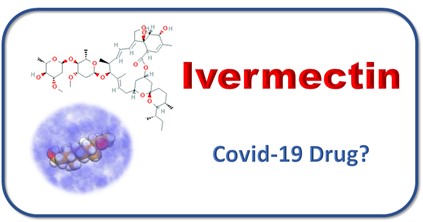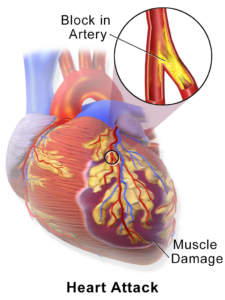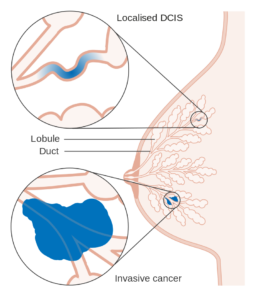Ivermectin: The drug’s fate in the treatment of Covid-19?

Dr. Juni Banerjee, Neucrad Health Desk, May 31, 2021
Discovery of Ivermectin by William C. Campbell and Satoshi Omura bagged the 2015 Nobel Prize in Physiology and Medicine. Ivermectin belongs to a class of drugs called ‘anti-helminthics’. Interestingly, besides working against the parasitic diseases it is also getting repurposed nowadays for treating other diseases in clinical applications.
Ivermectin and its anti-viral properties
Use of Ivermectin against the viruses has been reported from various research studies. Some of them are following:
- Ivermectin treatment increased survival of mice infected with the pseudorabies virus (PRV)
- Its treatment decreased the titters of porcine circovirus 2 (PCV2) in infected piglet’s tissues and serum.
- The antiviral efficacy of ivermectin has been reported in dengue virus-infected Aedes albopictus mosquitoes.
- It is a potential candidate against the alphavirus chikungunya, Sindbis virus, and yellow fever, a flavivirus.
- Ivermectin has demonstrated its antiviral activity against Zika virus (ZIKV) in in-vitro.
- Importantly, Caly et al. reported about the Ivermectin’s antiviral activity against Covid-19 causative virus i.e., SARS-CoV-2. According to their research study, one single dose of ivermectin reduced the replication of SARS-CoV-2 (studied in the Australian strain) in Vero/hSLAM cells by 5000-fold! This finding created immense attention among all the physicians, researchers and public health authorities. However, the study has some loop and holes like: a) the drug was tested only in-vitro using a monkey kidney cells engineered to express human signalling lymphocytic activation molecule (SLAM or CDw150) which is a receptor for the measles virus b) ivermectin’s effect was not examined for any pulmonary cell lines (crucial in case of Covid-19) c) it was not clear if, following ivermectin treatment the RNA level reductions of SARS-CoV-2 is proportional to decreased virus titters and d) Ivermectin’s concentration (5 μM) to block SARS-CoV-2 in the study was 35-fold higher than what FDA approves, raising concerns about its safety/side-effects and efficacy in humans.
Possible molecular strategies of ivermectin work:
Many RNA viruses enter the nucleus by infecting the body cells by associating viral proteins with the cell’s important alpha and beta (nuclear exporter proteins), two hetero-dimer protein complexes. Ivermectin prevents the formation of this important alpha and beta complex. As a result, the viral protein can no longer enter the nucleus. For which the replication and number increase of the virus is significantly reduced. However, this molecular strategy to prevent SARS-CoV-2 infection is only one possible hypothesis in the case of ivermectin. This strategy remains to be verified in research.

Of note, despite having promising antiviral properties, the use of Ivermectin is getting restrained by the challenges regarding its appropriate formulation development due to the drug’s poor water solubility, low oral bioavailability and the consequent effects on its total efficacy. Finding specific drug delivery targeting mechanisms, particularly delivery of ivermectin to lung areas should be the main focus in the context of Covid-19 pandemic. Interestingly, nanoparticles are currently being investigated by many research groups to improve the bioavailability and pulmonary delivery of ivermectin.
Ivermectin Use in India against Covid-19
The probable idea behind prescribing ivermectin by the Indian physicians for the Covid-19 patients is using the drug for a blanket therapy. Moreover, ivermectin is useful in patients with specific clinical features and a high risk of developing a superimposed bacterial infection over the standard Covid-19 pneumonia.
Some latest developments in medical science is indicating this drug’s direct effect on the SARS-CoV-2: “In a clinical setting, it is observed that there is an early viral clearance in patients who are put on Ivermectin. Symptomatically, there is no faster resolution observed, in terms of fever, cough, or sore throat despite the use of Ivermectin. There are no severe adverse effects noted in patients with non-severe Covid-19,” said Vighnesh Naidu Y, consultant physician, Yashoda Hospitals, Hyderabad.
However, once again, as ivermectin is a non-selective inhibitor of 3 crucial mammalian P-type ATPase at micromolar concentrations, we have to be concerns remain for the putative important adverse effects of this drug at higher doses which is a requisite to treat the patients of Covid-19 disease. Henceforth, Phase-I study has become crucial at this point to find the precise effectiveness, safety and working mechanism of ivermectin against SARS-CoV-2!
References:
- Formiga FR, Leblanc R, de Souza Rebouças J, Farias LP, de Oliveira RN, Pena L. Ivermectin: an award-winning drug with expected antiviral activity against COVID-19. J Control Release. 2021 Jan 10;329:758-761. doi: 10.1016/j.jconrel.2020.10.009. Epub 2020 Oct 7. PMID: 33038449; PMCID: PMC7539925.
- Mittal N, Mittal R. Inhaled route and anti-inflammatory action of ivermectin: Do they hold promise in fighting against COVID-19? Med Hypotheses. 2021 Jan;146:110364. doi: 10.1016/j.mehy.2020.110364. Epub 2020 Nov 5. PMID: 33246694; PMCID: PMC7644229.
- Jans DA, Wagstaff KM. The broad spectrum host-directed agent ivermectin as an antiviral for SARS-CoV-2 ? Biochem Biophys Res Commun. 2021 Jan 29;538:163-172. doi: 10.1016/j.bbrc.2020.10.042. Epub 2020 Oct 21. PMID: 33341233; PMCID: PMC7577703.
- Rakedzon S, Neuberger A, Domb AJ, Petersiel N, Schwartz E. From hydroxychloroquine to ivermectin: what are the anti-viral properties of anti-parasitic drugs to combat SARS-CoV-2? J Travel Med. 2021 Feb 23;28(2):taab005. doi: 10.1093/jtm/taab005. PMID: 33480414; PMCID: PMC7928734.
- Kaur H, Shekhar N, Sharma S, Sarma P, Prakash A, Medhi B. Ivermectin as a potential drug for treatment of COVID-19: an in-sync review with clinical and computational attributes. Pharmacol Rep. 2021 Jan 3:1–14. doi: 10.1007/s43440-020-00195-y. Epub ahead of print. PMID: 33389725; PMCID: PMC7778723.
- Ahmed S, Karim MM, Ross AG, et al. A five-day course of ivermectin for the treatment of COVID-19 may reduce the duration of illness. Int J Infect Dis. 2021;103:214-216. doi:10.1016/j.ijid.2020.11.191
- Heidary F, Gharebaghi R. Ivermectin: a systematic review from antiviral effects to COVID-19 complementary regimen. J Antibiot (Tokyo). 2020;73(9):593-602. doi:10.1038/s41429-020-0336-z
- Pandey S, Pathak SK, Pandey A, Salunke AA, Chawla J, Sharma A, Sharma S, Thivari P, Ratna HVK. Ivermectin in COVID-19: What do we know? Diabetes Metab Syndr. 2020 Nov-Dec;14(6):1921-1922. doi: 10.1016/j.dsx.2020.09.027. Epub 2020 Sep 28. PMID: 33032231; PMCID: PMC7521351.
- Pott-Junior H, Bastos Paoliello MM, Miguel AQC, da Cunha AF, de Melo Freire CC, Neves FF, da Silva de Avó LR, Roscani MG, Dos Santos SS, Chachá SGF. Use of ivermectin in the treatment of Covid-19: A pilot trial. Toxicol Rep. 2021;8:505-510. doi: 10.1016/j.toxrep.2021.03.003. Epub 2021 Mar 9. PMID: 33723507; PMCID: PMC7942165.









